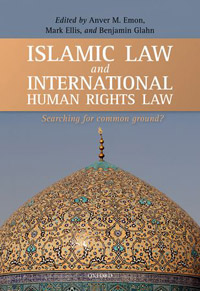Recent events in the Muslim world have occupied front page news for weeks. Between the violence generated by the cartoons depicting the Prophet Muhammad, and the recent capital case against the Afghan who converted from Islam to Christianity, questions about the nature and humanity of Islamic law loom large. Each instance, however, seems to be a symptom of a larger problem: namely, defining what Sharia is and its place in modern constitutional society.
In the Afghan apostate case, for instance, the judge was in an unenviable position. Article 1 of the Afghan constitution states that Afghanistan is an Islamic republic. Article 2 declares Islam to be the state religion, while subsection (2) states that religious minorities are free to exercise their faith “within the limits of the provisions of law.”
This begs the question: what defines those limits? Article 3 states unequivocally what those limits are: No law can contravene Islamic law. Consequently, a Muslim can live in Afghanistan in peace. A non-Muslim can also live in Afghanistan without suffering persecution for his or her faith. But if a Muslim converts to Christianity, this violates general provisions of Islamic law; any law drafted under Article 2(2) that protects the apostate would violate Article 3.

 Prof. Anver Emon is the co-editor, with Mark Ellis and Benjamin Glahn, of a new collection of essays published by Oxford University Press, Islamic Law and International Human Rights Law (2012).
Prof. Anver Emon is the co-editor, with Mark Ellis and Benjamin Glahn, of a new collection of essays published by Oxford University Press, Islamic Law and International Human Rights Law (2012).